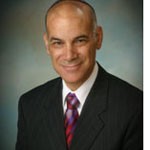By Rabbi Leonard Rosenthal

SAN DIEGO — This week at minyan I pointed out that Conservative siddurim offer two alternative prayers before the morning’s first kaddish. The second selection contains the traditional text:
“May it be Your will, Adonai our God and God of our ancestors, that the Temple be restored in our day, and grant us a portion among those devoted to Your Torah. May we worship You there, in splendor and in awe, as in ancient days.”
Many people who lead the service offer these traditional words. I, however, always choose the first prayer, a contemporary meditation written by Rabbi Jules Harlow:
“May it be Your will, Adonai our God and God of our ancestors, to grant us a portion in Your Torah. May we be disciples of Aaron the Kohen, loving peace and pursuing peace, loving our fellow creatures and drawing them near to the Torah.”
I explained to the minyanaires that I do not read the traditional prayer because I do not want the Temple in Jerusalem to be rebuilt so that we can worship there “as in ancient days.” This prayer is not only for the restoration of the Temple but the restoration of animal sacrifice, as well.
I agree with Moses Maimonides who wrote that animal sacrifice was instituted only as a way to wean human beings from human sacrifice. Hopefully, we are now at a stage of spiritual development when we realize that God does not need us slaughtering animals as an act of worship.
Most Orthodox Jews, however, want the Temple rebuilt and animal sacrifices restored. Some on the far right have gone so far as to try to “liberate” the Temple Mount and begin construction themselves. For example, a group called the Temple Mount Faithful wanted to lay the cornerstone for the Third Temple next to the Western Wall in 2005 but were stopped by Israel’s High Court of Justice. They have not discontinued their efforts to seize the Temple Mount.
Most Jews who want the Temple rebuilt do not believe it is our place to begin construction, but rather, it is in God’s hands. Parashat P’kudei records the completion of the construction of Mishkan, the desert tent in which the Israelites worshiped which was the precursor to the Temple: “In the first month of the second year, on the first of the month, the Tabernacle was set up. Moses set up the Tabernacle….” (Ex. 40:17-18)
The commentator known as the Kli Yekar noted the redundancy in the above verses. Verse 17 says that the “Tabernacle was set up” and verse 18 says “Moses set up the Tabernacle.” Traditional interpreters believe that the Torah, the Word of God, can never be redundant. Therefore the Kli Yekar suggested the reason for the repetition of the Hebrew word meaning “set up” is to teach us a lesson. While the First and Second Temples were “set up” by the hands of humans, the Third Temple will be “set up” by God alone.
Whereas most Orthodox Jews today support the State of Israel, this was not always the case. When Theodore Herzl first proposed a political solution to the “Jewish Problem” by Jews establishing a state in Biblical Eretz Yisrael (Palestine), he was condemned by many Orthodox authorities. They believed that the reestablishment of a Jewish state was up to God, and that any attempt by humans to do so was an act of defiance. This is the position still held by the Neturei Karta (“Guardians of the City”) who actively campaign against the State of Israel.
Thankfully, the Neturei Karta is only a small minority and the vast majority of Jews today support the State of Israel. Whether or not the Temple should or will be rebuilt is a matter of disagreement. Some say “yes” and some say “no.”
While I don’t think the Temple should be rebuilt, as least in its ancient form and with its ancient rituals, my opinion is not anchored in stone. If one day I travel to Jerusalem and see a Temple miraculously built by God on the site of the current Al Aksa Mosque and the Dome of the Rock, I am willing to change my mind!
*
Rabbi Rosenthal is spiritual leader of Tifereth Israel Synagogue in San Diego. He may be contacted at leonard.rosenthal@sdjewishworld.com